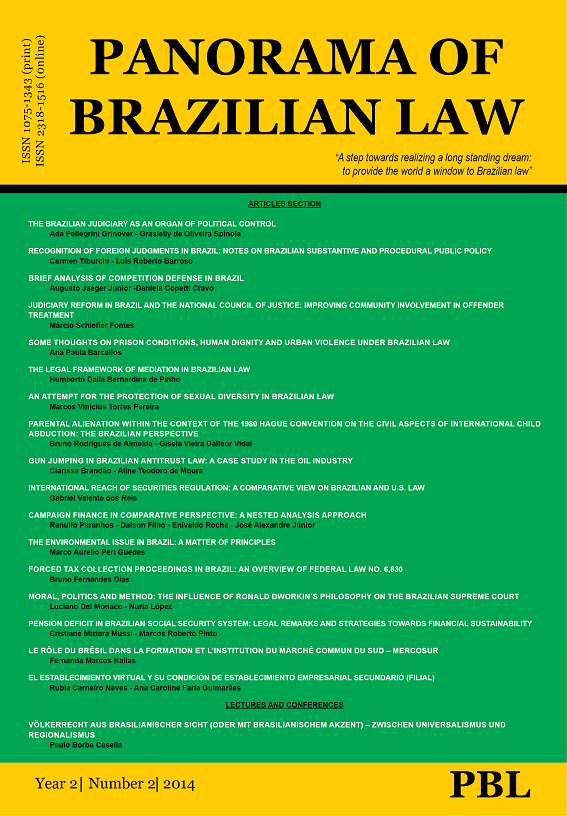GUN JUMPING IN BRAZILIAN ANTITRUST LAW: A CASE STUDY IN THE OIL INDUSTRY
DOI:
https://doi.org/10.17768/pbl.y2.n2.p193-212Περίληψη
This article presents some of the main changes introduced in the Brazilian antitrust system with the publication of Law no. 12.529, 2011, which introduced important changes in the control of acts of economic concentration - mergers, acquisitions, formation of joint ventures – which now began to be performed by the competent authority prior to the act of concentration, avoiding the consummation of transactions without the consent of CADE and analyzes the concept of Gun Jumping. The legislative change imposes a challenge for the Brazilian antitrust system: to define the boundaries between a lawful process of economic concentration and a Gun Jumping practice. In particular, a study was conducted on these impacts on the national oil industry in order to evaluate the performance of CADE in the implementation of the legislation.
Λήψεις
Δημοσιευμένα
Πώς να δημιουργήσετε Αναφορές
Τεύχος
Ενότητα
Άδεια
Panorama of Brazilian Law employs Open Journal Access policies.
Authors are fully and exclusively responsible for their submissions.
Authors who publish with this journal agree to the following terms:
- Authors retain copyright and grant the journal right of first publication with the work simultaneously licensed under a Creative Commons Attribution-NonCommercial-ShareAlike 4.0 International License that allows others to share the work on a non-comercial basis with an acknowledgement of the work's authorship and initial publication in this journal and indicating if any changes were made. If you remix, transform, or build upon the material, you must distribute your contributions under the same license as the original.
- Authors are able to enter into separate, additional contractual arrangements for the non-exclusive distribution of the journal's published version of the work (e.g., post it to an institutional repository or publish it in a book), with an acknowledgement of its initial publication in this journal.

